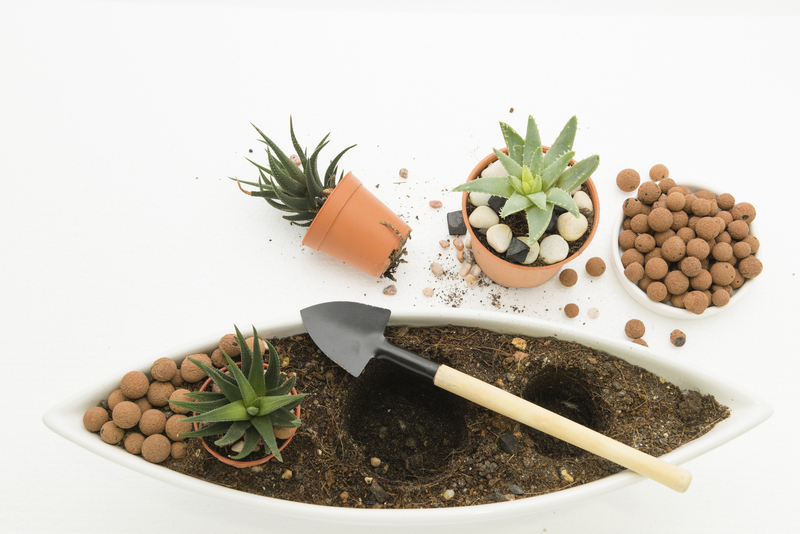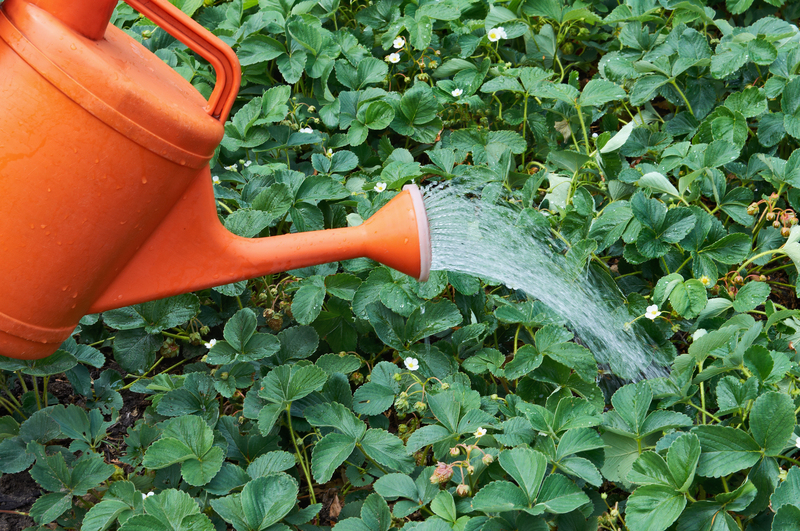Eco-Friendly Pest Control Methods for a Healthier Garden
Posted on 25/06/2024
Having a beautiful and healthy garden is a dream for many homeowners. However, one of the biggest challenges that gardeners face is dealing with pests. These unwanted visitors can damage plants, destroy fruits and vegetables, and even spread diseases. While traditional methods of pest control may involve harsh chemicals that can be harmful to both humans and the environment, there are now plenty of eco-friendly options available. In this article, we will discuss some effective and natural pest control methods that will help you maintain a healthier garden.
Effective and natural pest control methods that to maintain a healthier garden
1) Encourage Natural Predators
One of the most effective ways to control pests in your garden is by promoting natural predators. Ladybugs, praying mantis, spiders, and birds are all beneficial insects that feed on common garden pests like aphids, whiteflies, and caterpillars. You can attract these predators by planting a variety of flowers and herbs which act as a food source for them. Another way to encourage natural predators is by avoiding the use of pesticides that can harm them.
2) Use Organic Pesticides
If you do need to use a pesticide, opt for organic ones instead of the harsh chemical-based products. Organic pesticides are made from natural ingredients such as neem oil, garlic oil, or plant extracts. They are safe for humans and animals, and they break down easily into harmless substances after use. Just make sure to follow the instructions carefully and apply them only when necessary.
3) Practice Crop Rotation
Crop rotation is an ancient technique used by farmers to improve soil health and control pests without using any chemicals. It involves planting different crops in the same area over several seasons. This method helps prevent the build-up of pests that feed on specific plants while also replenishing soil nutrients naturally.
4) Use Mulch
Mulching not only adds nutrients to the soil but also acts as a barrier against pests. A layer of mulch around your plants can help prevent weed growth and keep harmful insects away. Organic mulch such as leaves, straw, or wood chips are the most effective and eco-friendly options. They also help retain moisture in the soil, reducing your need for watering.
5) Practise Sanitation
One of the simplest yet essential pest control methods is to maintain a clean garden. Regularly remove fallen leaves, fruits, and weeds as they can attract pests and provide them with a breeding ground. Tidy up your garden tools and equipment to avoid transporting pests from one area to another accidentally.

Pros:
- Eco-friendly pest control methods do not harm beneficial insects, animals, or humans.
- They help maintain a healthy ecosystem in your garden.
- Organic pesticides break down quickly without leaving harmful residues.
- Crop rotation and sanitation improve soil health and reduce the risk of pest outbreaks.
Cons:
- Eco-friendly pest control methods may take longer to see results compared to chemical-based products.
- Some natural predators may not be readily available in certain areas.
- Organic pesticides may be more expensive than traditional ones.
Tips:
- Be patient when using eco-friendly methods; it may take some time before you see significant results.
- Use a combination of different techniques for better effectiveness.
- If you are still unsure about using organic pesticides, try making your own at home using natural ingredients.

Takeaways:
- Pest control does not have to involve harsh chemicals.
- By promoting a healthy ecosystem, you can naturally keep pests at bay.
- Eco-friendly methods have long-term benefits for both your garden's health and the environment.
Conclusion:
Having a healthy garden does not mean you have to sacrifice the well-being of your family and the environment. By following these eco-friendly pest control methods, you can create a beautiful and thriving garden without harming any living creatures. Remember to encourage natural predators, use organic pesticides, practice crop rotation, use mulch, and maintain good sanitation practices. With patience and persistence, you can achieve a healthier garden while also doing your part in preserving our planet.
Latest Posts
Top Tips for Cleaning Your Patio and Paving Like a Pro
Easy Steps to Sharpen Your Garden Shears Without Leaving Home
Inspiring Concepts to Cultivate Your Own Zen Garden Sanctuary




